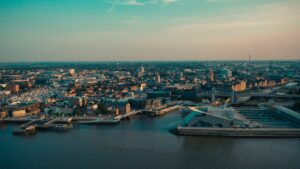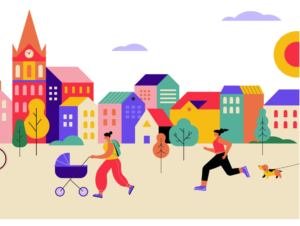Recently, we held our first CLES Think Time discussion in Manchester to consider the Big Society agenda and its relevance to economic development and regeneration practitioners.
This roundtable event attracted representatives from consultancy, local government and the community and voluntary sector for a two hour debate.
An important theme running through the discussion was the participative nature of the Big Society and the ultimate goal to give people a greater sense of power over their own lives. This reflects the surprisingly radical roots of the Big Society concept, often attributed to Saul Alinsky, a radical thinker and activist who encouraged the creation of self help organisations and promoted the idea of people taking greater charge and control over their own lives and the governance of their community.
However, the participative and permissive elements of the Big Society concept can sometimes prove difficult to reconcile with the existing systems of representative democracy, with elected representatives often feeling bypassed or circumvented.
There was broad agreement that local government needed to be more receptive to more participative forms of democracy, echoing the ideas of a report produced by the Local Government Association earlier this year which called for greater understanding and integration of representative and participative democracy.
The changing role of local government was also debated, with calls for councils to ‘get a grip’ to end the ‘institutional paternalism’ present in some, but not all, councils. This reflected delegates’ views that, with the policy landscape changing so quickly, councils are tending to react to these changes rather than act proactively to consider how their ways of working need to change in relation to service delivery in the future.
This change in culture would enable greater space for Big Society-type ideas to grow and encourage new partnerships between the public and social sectors. It could also help support local authorities to be much more active agents of change in their locality, taking a lead on key issues and providing strong place stewardship in the future.
However, there was general agreement that much of this new thinking had been squashed by the overwhelming weight of public sector cuts which was threatening to perpetuate the sense of inertia and low morale that currently pervades local government.
Underpinning much of the discussion was a conversation about control and power. Who has the power in any bigger society and what (and who) are they trying to control? The government launched Big Society as a mechanism for devolving power and decision making to communities (launched in their brief guide to localism published last year).
Decentralisation was at the centre of this policy but there are many contradictions with the general aspiration to decentralise, e.g. the highly centralising proposals around welfare reform and the universal credit and the recent debacle on wheelie bin collections which central government thought was worthy of Whitehall’s intervention.
The debate also touched on a number of other challenges such as access to Big Society, the language of Big Society and how potentially this restricts its accessibility. There is a need for greater honesty across the sector about how difficult greater participation and engagement are in the current context of public sector change and diminishing resources.
Although the session reflected the sombre mood of the sector at the current time with many questions about the future, there was also a sense of opportunity and an appetite for new ideas and ways of working.
Above all, delegates felt that there was a need for much greater solidarity within the community of professionals working in economic development and regeneration in order to both critically analyse new concepts such as Big Society as well as to re-imagine the future of local communities in an ever changing context.
We’ll be carrying the debate on at the CLES summit on 12th and 13th July at one of our sessions entitled Big Society or Big Baloney – you can find out more here.
- Find out about upcoming Think Time events here
















This was a good discussion and gave an opportunity to get a wide range of views on something which is going to affect local communities across the UK one way or another. It would be easy to collapse into a collective whinge-fest about the whole business of government cuts but as a natural optimist I would rather make the following points:
• Government cuts are here to stay for the foreseeable future, so anyone who is working at the sharp end of keeping society civilized and cohesive needs to find a new way of doing things
• This has massive implications for our traditionally paternalistic and state-interventionist culture, not least the risk of rapid rolling back of state support without a coherent replacement framework leading to collective withdrawal symptoms
• The term Big Society is simply a form of words – it is up to regeneration practitioners and the communities they serve to interpret it, hijack it if necessary, and make it work for us
• Big Society itself will continue to struggle to gain credibility amongst voters / communities as long as it remains incoherent. Conservative ideology aside, I believe there is a vacuum at the heart of government in giving the concept structure and clarity (and therefore traction) and that is where we come in
• We (the regeneration sector and communities) are potentially pushing at an open door in presenting ourselves as part of the solution, rather than the root of all evil.
• What we need out of this is a clear framework for action, lobbying for joined up policy and legislation which acknowledges the experience and achievements of communities and the voluntary sector so far and allows for resourcing to build on that rather than taking a short term “cut the deficit” view and whipping the rug out from under their feet
• We need to be banging on Whitehall’s door and having a proper debate, pulling together as a sector with CLES, Regeneration UK and other organizations with an interest (RTPI, RSA, IED, etc) formulating a plan and leading the charge
• This has to be our priority rather than the rather (in my view) angel-on-pinhead debates about what we call the sector (regeneration, economic development, resilience, whatever)
Let’s hope CLES and others in the sector can help spark action as well as just lively debate.